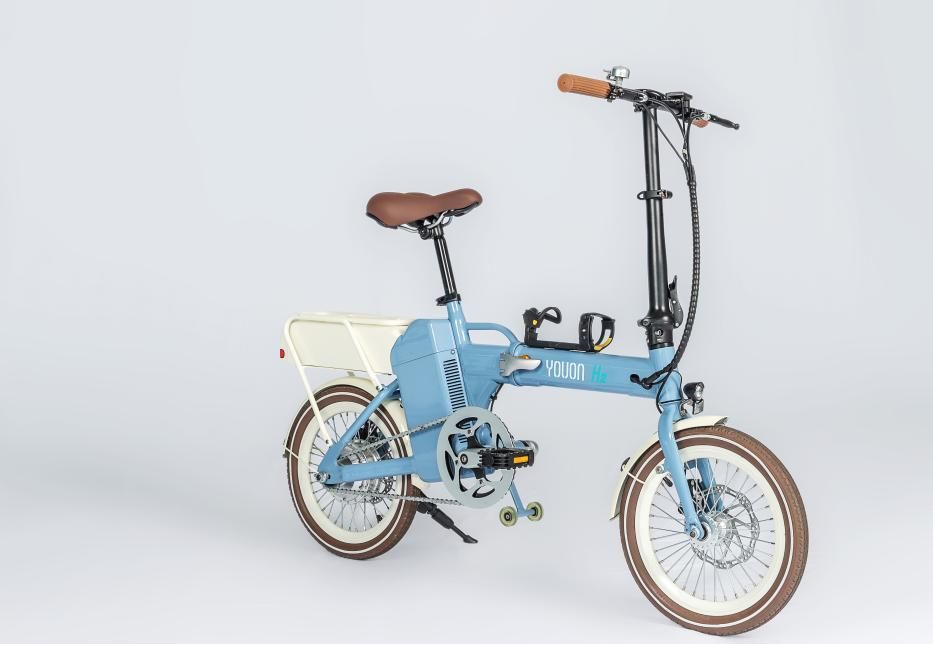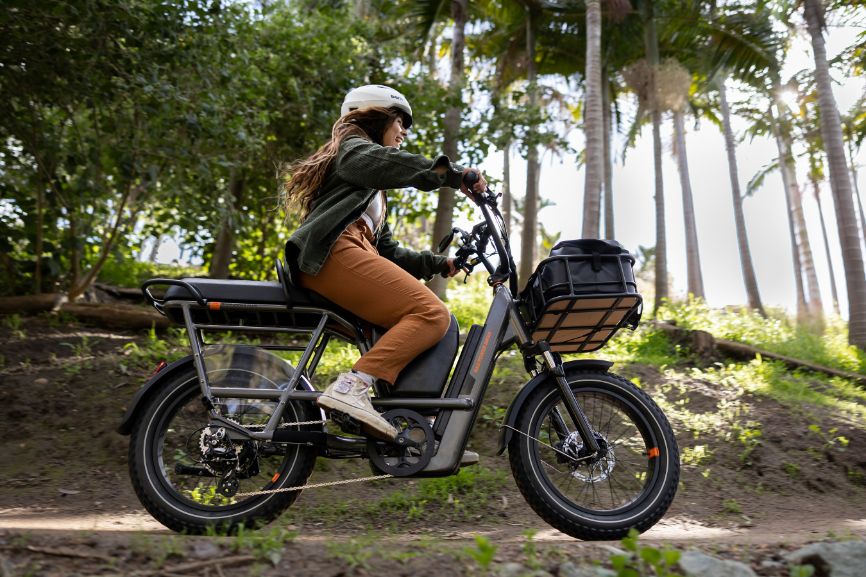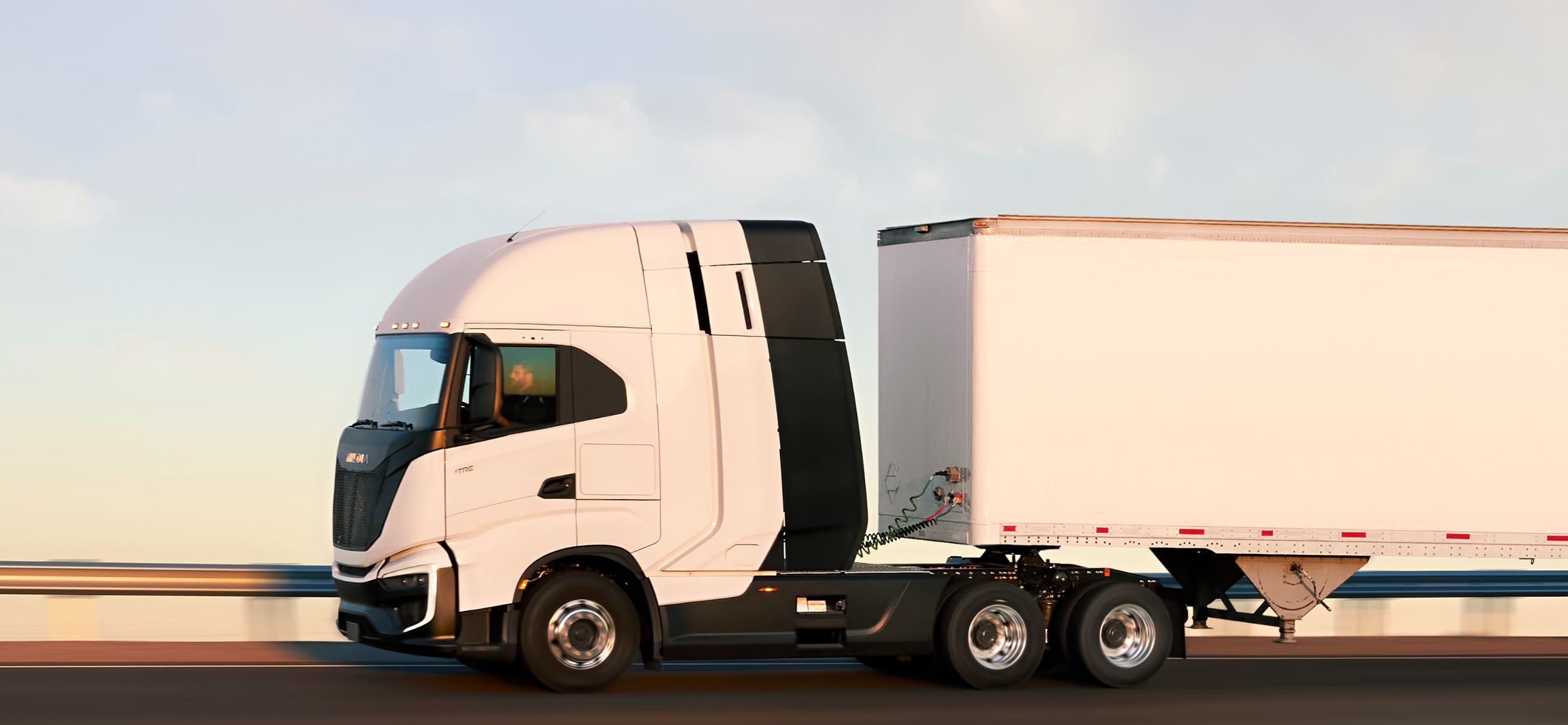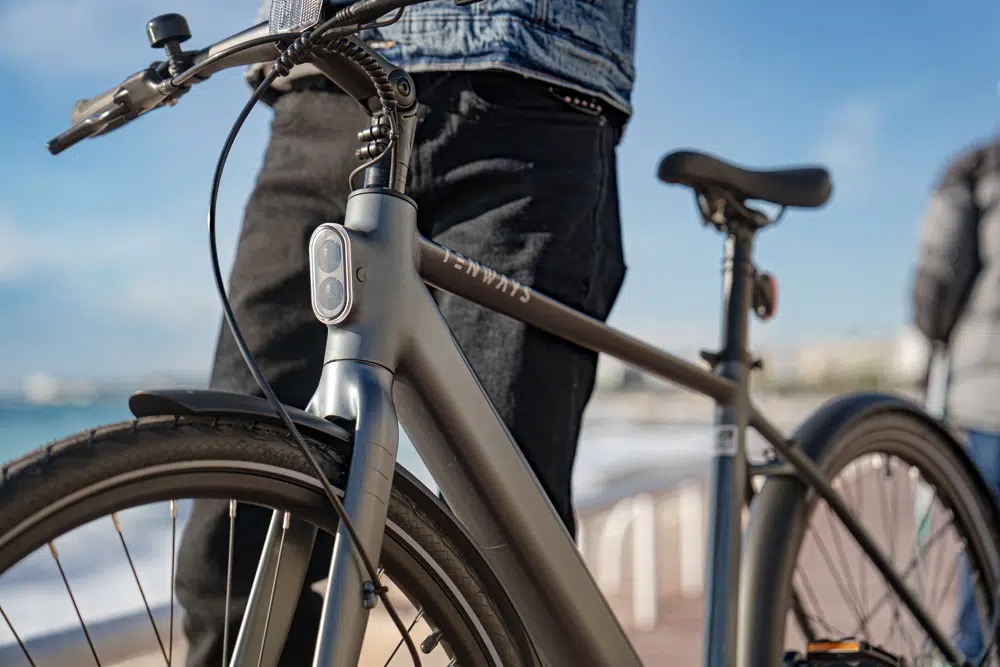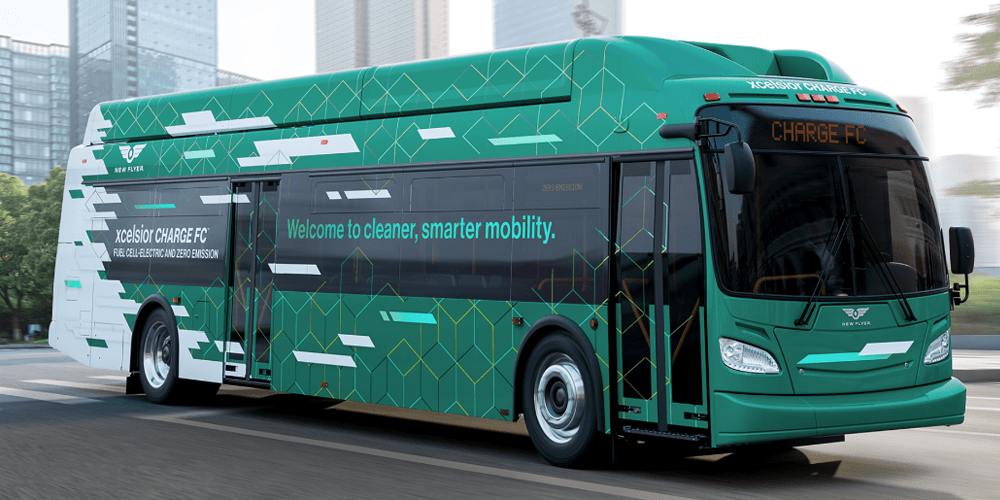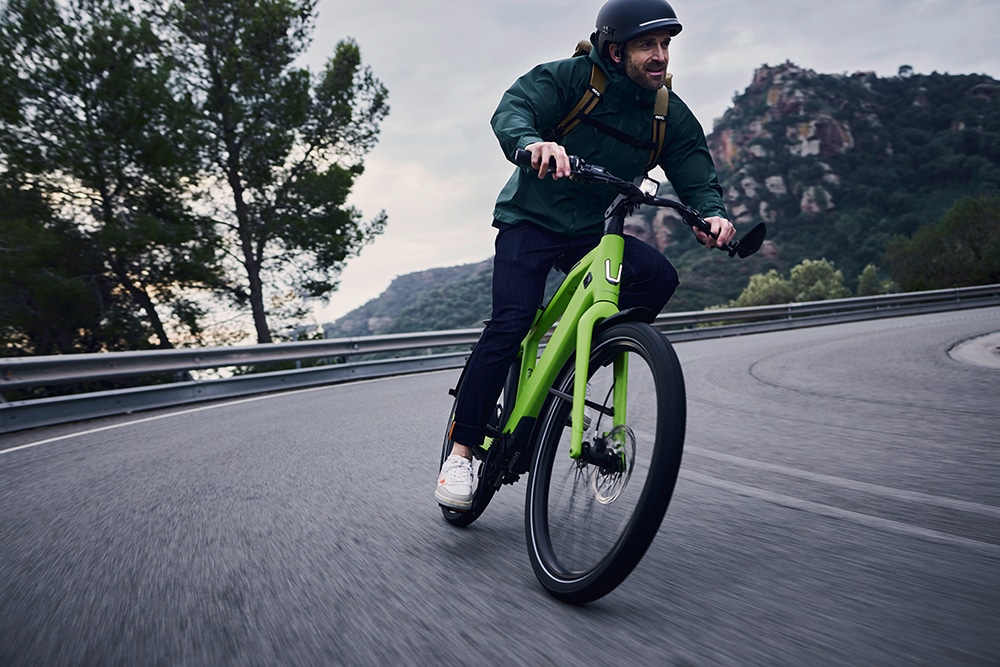The world’s biggest automakers have been experimenting with hydrogen power for electric vehicles, but challenges remain in making it a substitute for gasoline and battery-powered EVs. However, a Chinese bicycle manufacturer, Yuoun, believes that hydrogen power has more potential in the lightweight electric vehicle market. Recently, the company presented a prototype of its hydrogen-powered electric bike, which could be a game-changer for urban mobility.
From a styling perspective, the electric bike looks like any other e-bike, with a folding frame, a rear luggage rack, white rims, and a retro-inspired motif. However, instead of a lithium battery pack, it has a hydrogen fuel cell and a low-pressure hydrogen storage device in the large compartment at the rear. The system generates power that is transmitted to the rear hub-mounted motor. Although specifications are limited, the bike can reportedly reach speeds of up to 24 kilometers per hour (15 miles per hour).
See also: Hydrogen cars can compete with battery electric vehicles, BMW CEO says
Hydrogen power offers several benefits over battery power. Hydrogen cells are more durable and energy-dense, and they produce zero emissions, with water being the only byproduct. However, hydrogen fuel availability remains a major challenge.
Despite this, Yuoun plans to start series production of its hydrogen-powered e-bike as early as March 2023, with an annual production capacity of 50,000 bikes. The company aims to ramp up production to 200,000 bikes by 2025.
The potential for hydrogen-powered electric bikes is significant. They could provide a sustainable and efficient solution for urban mobility, particularly in densely populated areas where pollution and traffic congestion are major issues. However, the success of these bikes will depend on overcoming the challenges associated with hydrogen fuel availability and infrastructure.
See also: Volkswagen to Focus on EV Development, Will Not Produce Hydrogen Cars in Next Decade

